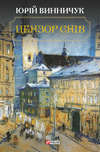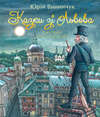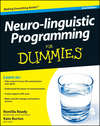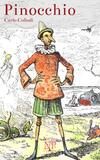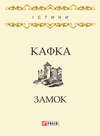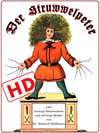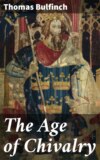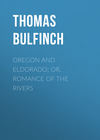Kitabı oku: «The Classic Myths in English Literature and in Art (2nd ed.) (1911)», sayfa 29
As the Wanderer speaks, the splendor spreads from the flame-girdled rock above.
"Go back thyself, thou babbler! There where the fires are blazing, – to Brünnhilde now must I hie!" And Siegfried pushes forward.
The Wanderer bars the way to the mountain: "Once already that sword of thine, Nothung, has broken on the haft of this sacred spear!"
"'Tis, then, my father's slayer!" thinks Siegfried; and nothing loath to face that foe, he raises the new-forged sword and strikes to pieces the All-father's spear!
"Fare on," says Wotan, quietly picking up the fragments, "I cannot withstand thee."
The god vanishes in darkness. The hero, light-hearted, blowing his horn, scales the cliffs, passes the fire, – wakes Brünnhilde. She, at first, with maidenly might struggles against his passion for her and her growing tenderness for him. She deplores the byrnie, shield and helm, symbols of her godhead, that he has torn from her. But, mortal now, she surrenders to a mortal's love:
"O Siegfried, Siegfried, child of delight,
Love thyself, – and turn thee from me;
Oh, bring not thine own to naught!"
And Siegfried:
"I – love thee: didst thou but love me!
Mine am I no more: oh, would that thou wert mine!..
Waken, O maid; live in laughter:
Sweetest delight, be mine, be mine!"
Then she, with a joyful cry:
"Oh, child of delight! Oh, glorious hero!
Thou foolish lord of loftiest deeds!
Laughing must I love thee,
Laughing welcome my blindness;
Laughing let us be lost,
With laughter go down to death…
Farewell, Valhalla's light-giving world:
Thy stately towers let fall in dust!
Farewell, O glittering pomp of the gods!
Complete your bliss, eternal host!
Now rend, ye Norns, your rope of runes:
Dusk of Gods in darkness arise;
Night of downfall dawn in mist!"
And thus, turning their backs on Valhalla, and radiant with the light of human love, the twain, laughing, face toward death.
288. The Twilight of the Gods. The play opens with a prelude. By the Valkyrie's rock sit the three Norns and sing of past, present, and future, weaving through the night their rope of runes. As they foretell the burning of Valhalla and the end of the gods, the rope breaks, and the Norns disappear into the earth.
The sun rises, and in the first act of the play Siegfried and Brünnhilde enter from their cave. She sends him forth in quest of heroic adventures in the world, giving him her horse, Grane, and receiving from him the Ring as a pledge of his love.
The scene changes, and we behold the interior of the Gibichungs' hall on the Rhine. Gunther and Gutrune, his sister, are in converse with Hagen, their half brother, – dark and treacherous son of Grimhilde, their mother, and of Alberich the Nibelung, erstwhile owner of the Ring. Hagen alone knows, it would seem, that Siegfried has already ridden through the flames and won Brünnhilde. The others know merely that that hero has slain Fafner and is lord of the Tarnhelm, hoard, and Ring. Hagen, anxious to regain the heritage of the Nibelungs, urges marriage on Gunther, naming Brünnhilde as a fitting bride for him. As, however, Siegfried alone can pass through the fire to come at her, he proposes that Gutrune shall win Siegfried's love and induce him to serve Gunther. Siegfried's horn is heard, and he presently enters and is made welcome. Gutrune, at the instigation of Hagen, brings Siegfried a potion which causes him to love her, and drives clean out of his mind all memory of Brünnhilde. In the madness of his passion for Gutrune, Siegfried swears blood-brotherhood with Gunther, and promises by the aid of the Tarnhelm to make Brünnhilde Gunther's wife, if only in return Gutrune shall be his. The newly sworn "brothers" depart for Brünnhilde's rock.
In the next scene we are again before the home of Brünnhilde. Waltraute, a Valkyrie, comes to beg Brünnhilde to give back the Ring to the Rhine-maidens, and so avert the doom of the gods.
"What, then, aileth the immortals?" cries Brünnhilde in alarm.
"Since Wotan doomed thee, no more hath he sent us to war," replies Waltraute. "No more hath he gathered the souls of the slain about him in Valhalla. Alone he has ridden unceasing through the world. But, one day, home he came bearing his spear all splintered in his hand. Wordless, with a sign he bade Valhalla's heroes hew the world ash tree in pieces and pile it like firewood around the Hall of the Blest. And from that hour silent he sits on his throne, about him the awe-struck gods and heroes, the war-maids cowering at his knees. None tastes the apples of youth. To-day Wotan remembered thee; his eye grew soft and, as dreaming, he spake:
'If once more the daughters of Rhine
Should win from her finger the Ring,
Of the load of the curse
Were the world and immortals made free.'
Brünnhilde, yield up the Ring, and end all the grief of the world!"
"The Ring?" wails Brünnhilde. "Knowest thou what 'tis to me? One flash of its fire outvalues all heaven's delight; for the gleam of that Ring is Siegfried's love!
"From love I never shall turn;
Of his love they never shall rob me,
Though into ruins
Valhalla's splendor should fall!"
Thus Brünnhilde refuses, and sends Waltraute away to take her defiance to Valhalla.
But retribution is swift, for on the moment Siegfried, changed to Gunther's shape by the Tarnhelm, comes and claims Brünnhilde as his bride. She resists and threatens him with the Ring. But now Siegfried, forgetful of the past, struggles for another with his own dear wife, overcomes her, and wrests the Ring from her. He then commands her to go into the cave, whither, after drawing his sword to lay between them as symbol of his loyalty to Gunther, he follows her.
The second act is outside the Gibichungs' hall. It is early morning of the next day. After a short scene in which the ever-plotting Alberich urges Hagen to get the Ring, Siegfried returns and tells Hagen and Gutrune of the winning of Brünnhilde and her approach with Gunther. Hagen calls together the vassals to welcome Gunther and his bride. The royal pair presently arrive and are received with loud acclaim. Straightway Brünnhilde recognizes Siegfried (who, however, does not know her) and, seeing the Ring on Siegfried's finger, she asks Gunther what he has done with the ring he took from her. His confusion reveals the truth to her, and she proclaims that she is wedded to Siegfried and not to Gunther. Siegfried swears on the point of Hagen's spear that her accusation is false. She repeats it, taking the same oath. Siegfried, Gutrune, and their vassals go out to prepare for the double wedding celebration; Gunther, Hagen, and Brünnhilde remaining solemnly condemn Siegfried to death for what seems treachery to one and all. Hagen, left alone, glories in the prospect of regaining the Ring.
The third act discloses an open place on the banks of the Rhine. The three Rhine-maidens pray to the sun for the return of the Rhine-gold. Siegfried, who has strayed from his companions on a hunting expedition, comes to the river bank. The maidens unsuccessfully attempt, by wiles and warnings of ill fate, to get the Ring from him, and finally swim away, foretelling his death that very day. Gunther, Hagen, and their vassals come to the place, and all sit down to rest. At Hagen's suggestion Siegfried relates the story of his life. But, lo! when he comes to the episode of his first passage through the fire, a draft given him by Hagen restores his memory, and innocently he tells of the waking and winning of Brünnhilde. All start up in amaze; Hagen stabs Siegfried in the back with his spear, and steals away. Siegfried falls, and after a few words sung to Brünnhilde, whom he sees as in a vision, he dies. His body is placed on a bier and borne away by the vassals with great pomp and state as the sun sets.
In the last scene we have the interior of the Gibichungs' hall as before. It is night. Gutrune comes from her chamber anxious for Siegfried. Presently Hagen's voice is heard calling for torches to light the returning hunters. He enters and, in reply to Gutrune's questions, tells her that Siegfried has been slain by a wild boar. Then come the vassals, bearing Siegfried's body. It is placed on a bier in the center of the hall. Hagen claims the Ring as his right for slaying Siegfried, but Gunther defies him to touch Gutrune's heritage. They fight and Gunther falls. As Hagen approaches the corpse to take the Ring, the dead Siegfried raises his arm threateningly. All start back in horror, and just then Brünnhilde enters and comes down to the bier. Here, after ordering a pyre to be built on the river bank, she sings a funeral song over Siegfried. The body, from which she has taken the Ring, is then placed on the pyre. Setting the Ring on her own finger, Brünnhilde calls on the Rhine-maidens to take it in turn from her ashes:
"Let fire, burning this hand
Cleanse, too, the Ring from its curse."
She applies the torch:
"So cast I the brand
On Valhall's glittering walls. —
When ye see in the kindling fire,
Siegfried and Brünnhild' consumed;
When ye see the river-daughters
Bear the Ring away to the deep:
To northward then
Look through the night!
When the heaven there gleams
With a holy glow,
Then know ye all
That Valhall's end ye behold!"
Her horse is brought. She mounts it and springs into the flames, which flare up and seize on the hall itself. The river overflows and rolls over the fire. The Rhine-maidens swim up and regain the Ring. Hagen rushes into the flood to get it from them, but is dragged down to the depths by their arms as they swim away. In the sky is seen a vision of Valhalla in flames.
The breed of the gods is gone like breath. The loveless Ring has worked its curse. Each in his turn its lords have bitten the dust. And Brünnhilde reads the moral:
"Not goods nor gold
Nor glory of gods
Can fashion a blessing for weal,
Can win a blessing from woe, —
But Love alone!"
PART II
THE HISTORY OF MYTH
CHAPTER XXX
THE ORIGIN AND ELEMENTS OF MYTH
289. Kinds of Myth. If we classify the preceding stories according to the reason of their existence, we observe that they are of two kinds, – explanatory and æsthetic.
(1) Explanatory myths are the outcome of naïve guesses at the truth, of mistaken and superstitious attempts to satisfy the curiosity of primitive and unenlightened peoples, to unveil the mysteries of existence, make clear the facts of the universe and the experiences of life, to account for religious rites and social customs of which the origin is forgotten, to teach the meaning and the history of things. There are certain questions that nearly every child and every savage asks: What is the world and what is man? Who made them? What else did the maker do? and what the first men? Whence came the commodities of life? Why do we celebrate certain festivals, practice certain ceremonials, observe solemnities, and partake of sacraments, and bow to this or the other god? What is death, and what becomes of us after death? The answers to such questions crystallized themselves gradually into stories of the creation, of the gods, and of the heroes – forefathers of men, but magnified, because unfamiliar, mysterious, and remote.
Old literatures abound in explanatory myths of so highly imaginative a character that we moderns are tempted to read into them meanings which probably they never possessed. For the diverse and contradictory significations that have in recent years been proposed for one and the same myth could not all, at any one time, have been entertained by the myth-makers. On the other hand, the current explanations of certain myths are sufficiently apparent to be probable. "To the ancients," says John Fiske,375 "the moon was not a lifeless body of stones and clods; it was the horned huntress Artemis, coursing through the upper ether, or bathing herself in the clear lake; or it was Aphrodite, protectress of lovers, born of the sea foam in the East, near Cyprus. The clouds were not bodies of vaporized water; they were cows, with swelling udders, driven to the milking by Hermes, the summer wind; or great sheep with moist fleeces, slain by the unerring arrows of Bellerophon, the sun; or swan-maidens, flitting across the firmament; Valkyries hovering over the battle field to receive the souls of falling heroes; or, again, they were mighty mountains, piled one above another, in whose cavernous recesses the divining wand of the storm-god Thor revealed hidden treasures. The yellow-haired sun, Phœbus, drove westerly all day in his flaming chariot; or, perhaps, as Meleager, retired for awhile in disgust from the sight of men; wedded at eventide the violet light (Œnone, Iole) which he had forsaken in the morning; sank as Hercules upon a blazing funeral pyre, or, like Agamemnon, perished in a blood-stained bath; or, as the fish-god, Dagon, swam nightly through the subterranean waters to appear eastward again at daybreak. Sometimes Phaëthon, his rash, inexperienced son, would take the reins and drive the solar chariot too near the earth, causing the fruits to perish, and the grass to wither, and the wells to dry up. Sometimes, too, the great all-seeing divinity, in his wrath at the impiety of men, would shoot down his scorching arrows, causing pestilence to spread over the land."
(2) Æsthetic myths have their origin in the universal desire for amusement, in the revulsion of the mind from the humdrum of actuality. They furnish information that may not be practical, but is delightful; they elicit emotion – sympathy, tears, and laughter – for characters and events remote from our commonplace experience but close to the heart of things, and near and significant and enchanting to us in the atmosphere of imagination that embraces severed continents, inspires the dead with life, bestows color and breath upon the creatures of a dream, and wraps young and old in the wonder of hearing a new thing. The æsthetic myth, first, removes us from the sordid world of immediate and selfish needs, and then unrolls a vision of a world where men and things exist simply for the purpose of delighting us. And the enduring measure of delight which the æsthetic myth affords is the test of what we call its beauty.
A myth, whether explanatory or æsthetic, is of unconscious growth, almost never concocted with a view to instruction.
According to their subjects, æsthetic myths are either historic or romantic. (a) If historic, they utilize events which have a skeleton of fact. They supply flesh and sinew of divine or heroic adventure and character, blood and breath of probability and imagination. In historic myths the dependence of gods, heroes, and events upon the stern necessity of an overruling power, of fate or providence, is especially to be observed. Of this class is the Iliad of Homer.
(b) If romantic, the myths are characterized by bolder selection or creation of fundamental events; indeed, events appear to be chosen with a view to displaying or developing the character of the hero. In such myths circumstances are not so important as what the hero does with circumstances. The hero is more independent than in the historic myth; his liberty, his choice, – in judgment, in conduct, and in feeling, – his responsibility, are the center of interest. In romantic myths like the Odyssey this sense of freedom does not impel the poet to capricious use of his material. But lesser bards than Homer have permitted their heroes to run riot in adventures that weary the imagination and offend the moral judgment.
290. Divisions of Inquiry. We are next led to ask how these myths came into existence, and how it is that the same myth meets us under various forms in literatures and among peoples widely separate in time and place. These are questions of the Origin and Distribution of myths; and in this chapter we shall discuss the former.
291. Elements of the Myth. The myths preserved in the literatures of many civilized nations, such as the Greek, present to the imaginative and the moral sense aspects fraught with contradiction. In certain myths the gods display themselves as beautiful, wise, and beneficent beings; in others they indulge in cruel, foolish, and unbeautiful practices and adventures. These contradictory elements have been called the reasonable and the senseless. A myth of Mother Earth (Demeter) mourning the loss of her daughter, the Springtide, is reasonable; a myth of Demeter devouring, in a fit of abstraction, the shoulder of the boy Pelops, and replacing it with ivory, is capricious, apparently senseless. "It is this silly, senseless, and savage element," as Max Müller says, "that makes mythology the puzzle which men have so long found it."
292. Reasonable Myths. If myths were always reasonable, it would not be difficult to reach an agreement concerning some way by which they may have come into existence.
Imagination. If we assume that the peoples who invented these stories of supernatural beings and events had, with due allowance for the discrepancy in mental development, imaginations like our own, there is nothing in the history of reasonable myths to baffle our understanding. For, at the present time, not only children and simple-minded men, like sailors or mountaineers, but cultivated men of ordinary poetic sensibility, bestow attributes of life upon inanimate things and abstract ideas. The sun is nowadays thirsty, the ship is a woman, the clouds threaten, charity suffereth long, the waves are angry, time will tell, and death swallows all things. The sun still rises, and, as Mr. Jasper maintains, "do move." By personification we, every day, bestow the attributes of human beings upon inanimate nature, animals, and abstractions. By our metaphors we perpetuate and diffuse the poetic illusion; we talk not perhaps of the arrows of Apollo, but of a sunstroke; our poetry abounds in symbols of the moon, of the swift-wingèd wind, of the ravening sea. In our metonymies we use the sign for the thing signified, the crown for the king, the flag for the honor of the country; and the crown and the flag are to-day possessed of attributes and individuality just as efficient as those that endowed the golden handmaids of Vulcan or the eagle of Jove. Nor is hyperbole any less in use among us than it was among the ancients; we glorify our political heroes with superlatives, they dignified theirs with divinity.
Belief. But this resemblance in habits of imagination, while it may help us to appreciate the mental condition of primitive peoples, accentuates the distinction between our imagination and theirs. They, at some time or other, believed in these personifications. We do not believe. But their belief is easier to comprehend when we remember that the myths of savages are not a deliberate invention of any one individual, but are constructed by generations of people, and that many of them cluster about beings who were actually worshiped. Among primitive nations the sense of awe in the presence of magnificent objects of nature – mountains, the sky, the sun, the sea – is universal. It springs from the fact that savages do not deem themselves superior to nature. They are not conscious of souls whose flight is higher than that of nature. On the contrary, since sun, sea, and winds move, the savage invests them with free will and personality like man's. In proportion, however, as their size is grander or their movement more tremendous, these objects must be possessed of freedom, personality, and power exceeding those of man. Why, then, should not the savage believe, of beings worthy of worship and fear and gratitude, all and more than all that is accredited to man? Why not confer upon them human and superhuman passions and powers? If we were living, like the Greek of old, close to the heart of nature, such personification of natural powers would be more easy for us to appreciate.
"If for us also, as for the Greek," says Ruskin,376 "the sunrise means daily restoration to the sense of passionate gladness and of perfect life – if it means the thrilling of new strength through every nerve, – the shedding over us of a better peace than the peace of night, in the power of the dawn, – and the purging of evil vision and fear by the baptism of its dew; – if the sun itself is an influence, to us also, of spiritual good, – and becomes thus in reality, not in imagination, to us also, a spiritual power, – we may then soon overpass the narrow limit of conception which kept that power impersonal, and rise with the Greek to the thought of an angel who rejoiced as a strong man to run his course, whose voice, calling to life and to labor, rang round the earth, and whose going forth was to the ends of heaven."
Regarding thus the religious condition of the savage, we may comprehend the existence of myths and his acceptance of them.
293. Unreasonable Myths. But he would maintain this attitude of acceptance only in the matter of good and beneficent gods and of righteous or reasonable myths.
For how could a human being believe of the god whom he worshiped and revered, deeds and attributes more silly and more shameful than man can conceive of his fellow man? When, therefore, we find senseless and shameless myths existing side by side with stories of the justice and righteousness of the same god, we must conclude that, since the worshiper could not believe both sets of attributes, he preserved his religious attitude before the good god only by virtue of rejecting the senseless myth.
A man's religious belief would assist him to entertain only the reasonable myths. How, then, did the senseless and cruel stories come into existence? And were they ever believed?
There are many answers to these questions. They may, however, be classified according to the theory of civilization that they assume.
According to the Theory of Deterioration, or Human Depravity, man, although he had in the beginning knowledge of common facts, pure moral and religious ideas, and true poetic conceptions, has forgotten, with the lapse of time, the significance of words, facts, men, and events, adopted corrupt moral and religious notions, and given license to the diseased imagining of untrue and unlovely conceptions.
According to the Theory of Improvement, or Progress, man, beginning with crude dreams and fancies about experience, life, the world, and God, has gradually developed truer and higher conceptions of his own nature, of his relation to the world about him, of duty, of art, and of religion.
294. Theory of Deterioration. Let us consider first the interpretations of mythology that assume a backward tendency in early civilization. They are:
(1) The Historical, or better called after its author, Euhemerus (B.C. 316), the Euhemeristic. This explanation assumes that myths of the gods are exaggerated adventures of historic individuals, chieftains, medicine men, heroes; and that supernatural events are distortions of natural but wonderful occurrences. In fact, it attributes to our forefathers a disease of the memory which prompted them to pervert facts. Jupiter, Odin, and Hercules were accordingly men who, after death, had been glorified, then deified, then invested with numerous characteristics and adventures appropriate to their exalted conditions of existence.
The custom of worshiping ancestors, still existent in China and other countries, is adduced in support of this method of investigating myths, and it is undoubtedly true that the method explains the origin and growth of some myths. But it accounts rather for the reasonable than the senseless element of mythical adventure, while it fails to show how savages come to exaggerate their heroes into beings entirely out of the realm of that actual experience which is the basis of the historical assumption.
(2) The Philological Interpretation377 assumes also a disease of the memory by reason of which men misunderstand and confuse the meanings of words, and misapply the words themselves. Professor Max Müller calls this affection a disease of language. In ancient languages every such word as day, night, earth, sun, spring, dawn, had an ending expressive of gender, which naturally produced the corresponding idea of sex. These objects accordingly became in the process of generations not only persons, but male and female. As, also, the phrases expressing the existence or the activity of these natural objects lost their ancient signification under new colloquial coloring, primitive and simple statements of natural events acquired the garb and dignity of elaborate and often incongruous narratives, no longer about natural events, but about persons. Ancient language may, for instance, have said sunrise follows the dawn. The word for sun was masculine; the word for dawn, feminine. In time the sentence came to mean, Apollo, the god of the sun, chases Daphne, the maiden of the glowing dawn. But the word, Daphne, meant also a laurel that burned easily, hence might readily be devoted to the god of the sun. So Daphne, the maiden, assuming the form of Daphne, the laurel, escaped the pursuit of her ardent lover, by becoming the tree sacred to his worship.378 The merit of the philological method is, that, tracing the name of a mythical character through kindred languages, it frequently ascertains for us the family of the myth, brings to light kindred forms of the myth, discovers in what language the name was born, and sometimes, giving us the original meaning of the divine name, "throws light on the legend of the bearer of the name and on its origin and first home."379
But unfortunately there is very often no agreement among scholars about the original meaning of the names of mythical beings. The same name is frequently explained in half a dozen different ways. The same deity is reduced by different interpreters to half a dozen elements of nature. A certain goddess represents now the upper air, now light, now lightning, and yet again clouds. Naturally the attempts at construing her adventures must terminate in correspondingly dissimilar and unconvincing results. In fine, the philological explanation assumes as its starting point masculine and feminine names for objects of nature. It does not attempt to show how an object like the ocean came to be male and not female, or how it came to be a person at all. And this latter, in studying the origin of myths, is what should first be ascertained. We must not, however, fall into the error of supposing that the philologists look for the origin and growth of all myths in words and the diseases of words. Max Müller grants that mythology does not always create its own heroes, but sometimes lays hold of real history. He insists that mythologists should bear in mind that there may be in every mythological riddle elements which resist etymological analysis, for the simple reason that their origin was not etymological, but historical.
(3) The Allegorical Interpretation is akin to the philological in its results. It leads us to explain myths as embodiments in symbolic guise of hidden meaning: of physical, chemical, or astronomical facts; or of moral, religious, philosophical truth. The stories would at first exist as allegories, but in process of time would come to be understood literally. Thus Cronus, who devours his own children, is identified with the power that the Greeks called Chronos (Time), which may truly be said to destroy whatever it has brought into existence. The story of Io is interpreted in a similar manner. Io is the moon, and Argus the starry sky, which, as it were, keeps sleepless watch over her. The fabulous wanderings of Io represent the continual revolutions of the moon. This method of explanation rests upon the assumption that the men who made the allegories were proficient in physics, chemistry, astronomy, etc., and clever in allegory; but that, for some unknown reason, their descendants becoming stupid, knowledge as well as wit deserted the race. In some cases the myth was, without doubt, from the first an allegory; but where the myth was consciously fashioned as an allegory, in all probability it was preserved as such. It is not, however, likely that allegories of deep scientific or philosophical import were invented by savages. Where the myth has every mark of great antiquity, – is especially silly and senseless and savage, – it is safe to believe that any profound allegorical meaning, read into it, is the work of men of a later generation, who thus attempted to make reasonable the divine and heroic narratives which they could not otherwise justify and of whose existence they were ashamed. We find, moreover, in some cases a great variety of symbolic explanations of the same myth, one with as great claim to credence as another, since they spring from the same source, – the caprice or fancy of the expounder.
Among the ancients Theagenes of Rhegium, six hundred years before Christ, suggested the allegorical theory and method of interpretation. In modern times he has been supported by Lord Bacon, whose "Wisdom of the Ancients" treats myths as "elegant and instructive fables," and by many Germans, especially Professor Creuzer.
(4) The Theological Interpretation. This premises that mankind, either in general or through some chosen nationality, received from God an original revelation of pure religious ideas, and that, with the systematic and continued perversion of the moral sense, this knowledge of truth, morality, and spiritual religion fell into corruption. So in Greek mythology the attributes of the various gods would be imperfect irradiations of the attributes of the one God. A more limited conception is, that all mythological legends are derived from the narratives of Scripture, though the real facts have been disguised and altered. Thus, Deucalion is only another name for Noah, Hercules for Samson, Arion for Jonah, etc. Sir Walter Raleigh, in his "History of the World," says, "Jubal, Tubal, and Tubal-Cain were Mercury, Vulcan, and Apollo, inventors of pasturage, smithing, and music. The dragon which kept the golden apples was the serpent that beguiled Eve. Nimrod's tower was the attempt of the giants against heaven." There are doubtless many curious coincidences like these, but the theory cannot, without extravagance, be pushed so far as to account for any great proportion of the stories. For many myths antedate the scriptural narratives of which they are said to be copies; many more, though resembling the scriptural stories, originated among peoples ignorant of the Hebrew Bible. The theory rests upon two unproved assumptions: one, that all nations have had a chance to be influenced by the same set of religious doctrines; the other, that God made his revelation in the beginning once for all, and has done nothing to help man toward righteousness since then. The theological theory has been advocated by Voss and other Germans in the seventeenth century, by Jacob Bryant in 1774, and in this century most ably by Gladstone.380


